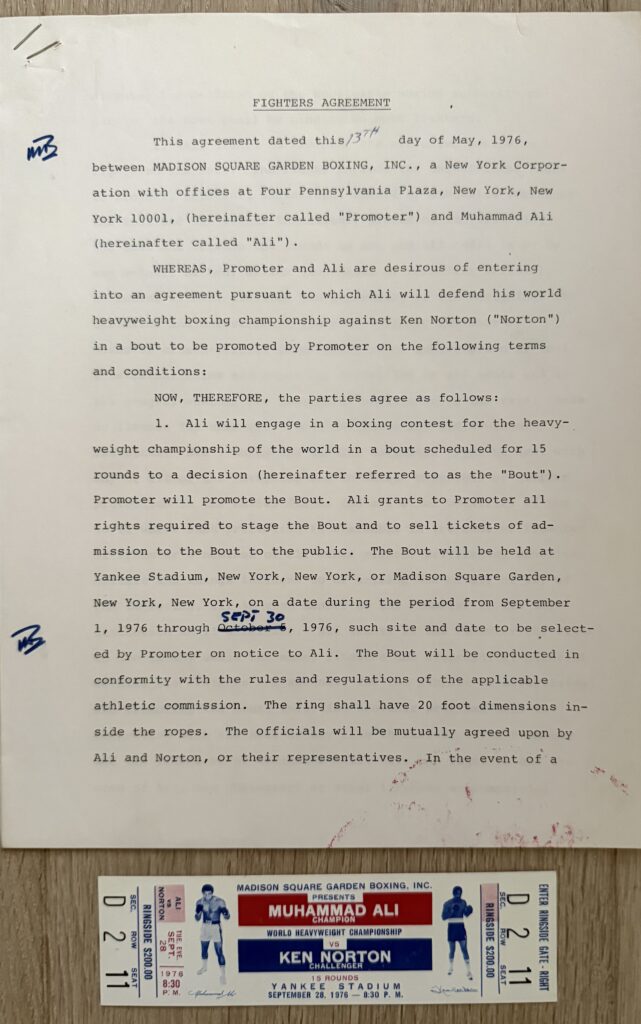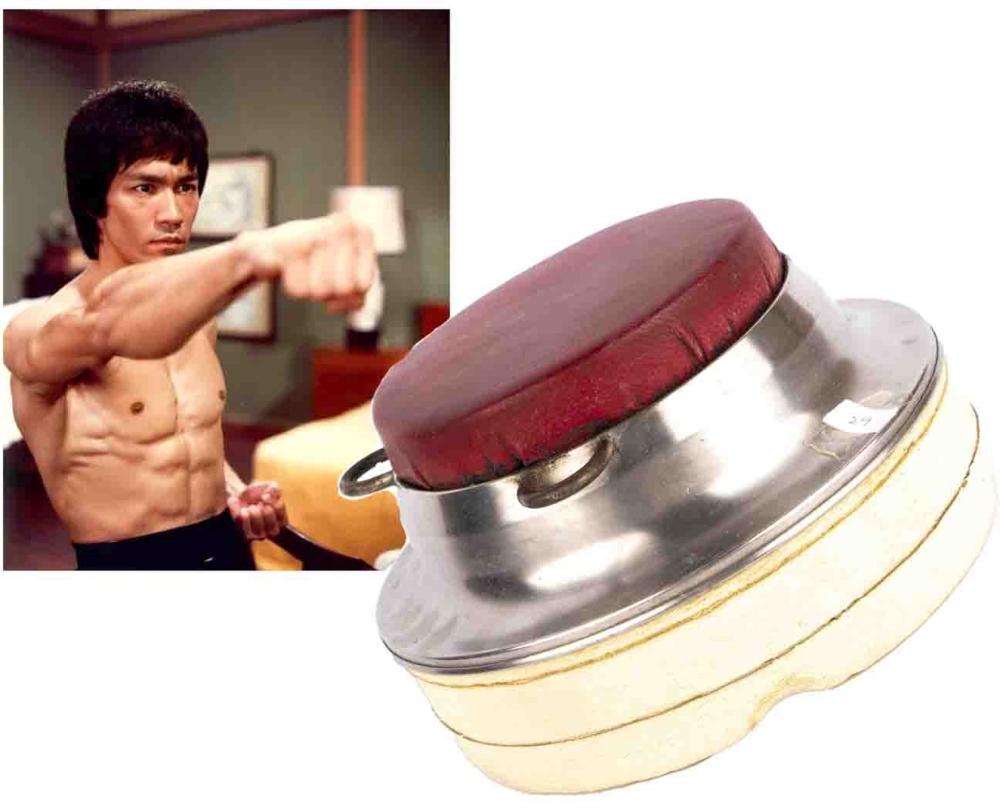THE HISTORIC 1976 ORIGINAL ‘FIGHT AGREEMENT’ BETWEEN MUHAMMAD ALI AND KEN NORTON AT MADISON SQUARE GARDEN
Significant original signed document, 12 pages, 8.5 x 11, February 28, 1974. A “Fighter’s Agreement” for Ali’s third bout versus Ken Norton, to be held at Madison Square Garden on May 13, 1974. The document outlines the rights and responsibilities of the promoter, the dimensions of the ring, Ali’s compensation ($1 million payable within 24 hours of the bout, 50% of the net revenues from sponsorship rights, and 50% of net live gate and ancillary revenues in excess of $9 million:, training expense allowance ($100,000), travel costs (25 each of first class and economy class airline tickets to New York), complimentary tickets, and more. Ali has signed on page 11 together with his manager, Herbert Muhammad and Madison Square Boxing representative Michael Burke, who has initialed several other pages.
Accompanied by an original ticket from the event.
The third fight between Muhammad Ali and Ken Norton, which took place at Madison Square Garden, was a highly anticipated rematch. While the bout was close, Ali ultimately won by unanimous decision. Ali’s trainer, Angelo Dundee, claimed Ali’s jaw was broken in the first round, while Norton’s trainer, Eddie Futch, believed it was broken in the eleventh. Despite the close nature of the fight and Norton’s strong performance, Ali retained his heavyweight title.
But if justice was lacking in the finale of this famous trilogy, the result spoke to the unparalleled relevance of Ali to his sport, a fact that Norton himself acknowledged as a fairly reasonable rationale for gifting him the decision. Ali was candid about his declining skills in the aftermath and spoke of retirement, but he’d fight six more times, winning half of those bouts, including a third Heavyweight Championship. But in many ways the bout marked the end of an era.
Presented is the contract that brought the two Boxing Hall of Famers together for a bout “…held at Yankee Stadium, New York, New York, or Madison Square Garden, New York, New York, on a date during the period from September 1, 1976 through Sept. 30, 1976…”. Ali signs the final page along with manager Herbert Muhammad and president of Madison Square Garden, Michael Burke. Small handwritten modifications are initialed by Burke and/or the fighters’ representatives. A single page at the end of each contract, signed by Burke alone, assures the performance of Madison Square Garden Boxing, Inc.
The contract survives without a single condition defect of any concern, with all signatures as bold as the date of their application. An exceptional fight-related relic from the most legendary figure in the history of the sport.




